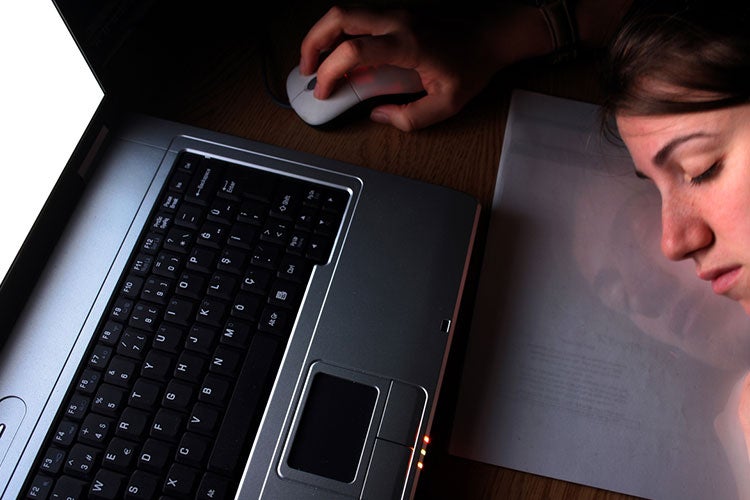Employees who sleep better, work better, according to emerging research.
Studies conducted by people like Nicolaas Pronk, adjunct professor of social and behavioral sciences at Harvard T.H. Chan School of Public Health, have broken ground when it comes to connecting the dots between productivity in the workplace and health indicators such as diet, exercise, and smoking and drinking habits.
But when it comes to productivity, “If you look at sleep, just hours of regular sleep, that has a much stronger impact,” according to Orfeu Buxton, also from Harvard Chan School’s Department of Social and Behavioral Health, emphasizing the importance of Pronk’s research.
Employees who sleep better, work better.
Sleep, or lack thereof, is a big part of the equation when it comes to health, wellness, and productivity, Buxton said. It’s an issue that especially affects night-shift workers, such as doctors, nurses, firefighters, police officers, and anyone else burning the midnight oil – or 3:45 a.m. oil, as is often the case.
“You can’t really adapt to night work,” Buxton said. He’s spent his own wakeful nights in labs, studying the sleeping habits of subjects with carefully controlled variables, ranging from things like diet to social interactions and environmental cues.
However, to fully understand how sleep and other health issues interconnect, “You have to get out into the messy world of free-range humans,” he said.
Recent studies of firefighters and police officers have shown “a shockingly high number are not only sleep deprived, but they have sleep disorder breathing.”
Sleep disorders can snowball into bigger problems. People have less energy, so they exercise less. Sleep disruptions have been shown to impact people’s food preferences, steering them away from kale and toward donuts: “The Homer Simpson diet driven by night work and sleep loss,” Buxton said. Unhealthy lifestyles, in turn, can lead to sleep problems. The issues are woven together.
Those police officers and firefighters “have a shortened lifespan due to the sleep disorders,” Buxton said, adding they die six years younger, on average. “That relationship is not fully appreciated,” he said.
Addressing these problems is challenging. Night-shifts often mean overtime pay for workers; even if they had a choice about when to work, their families’ financial needs might come first.
A common therapy is to wear a continuous positive airway pressure mask at night, and “that treatment is not sexy, and it means sleeping with something on your face,” Buxton said, describing why people might resist such treatment.
In all, “How you sleep affects the positivity or negativity of the next day… and how you sleep predicts how well you cope, how resilient you are,” he said.
Does that mean employers should start concerning themselves with employees’ sleeping habits?
Sleep, or lack thereof, is a big part of the equation when it comes to health and productivity.
At the moment the issue isn’t as prominent as obesity and smoking when it comes to the broader debate about “what’s under the company’s purview and what’s not,” Buxton said. He noted that getting involved in an employee’s sleep habits “seems intrusive.”
What’s more, “My personal view is that mass proscriptive [methods] generally are going to backfire on the kind of people you want around, but rule followers and people good at hiding things will stick around,” he said.
To address the host of lifestyle issues that lead to health and productivity, such as diet, exercise, and sleep habits, “fundamentally you have to be doing it for yourself or your family, not for your work,” Buxton said.
It needs to be an employee decision, “but it is, in part, up to the employer to enable,” he said.
Dr. Pronk teaches in Work Health and Well-being: Achieving Total Worker Health at the Harvard T.H. Chan School of Public Health.
